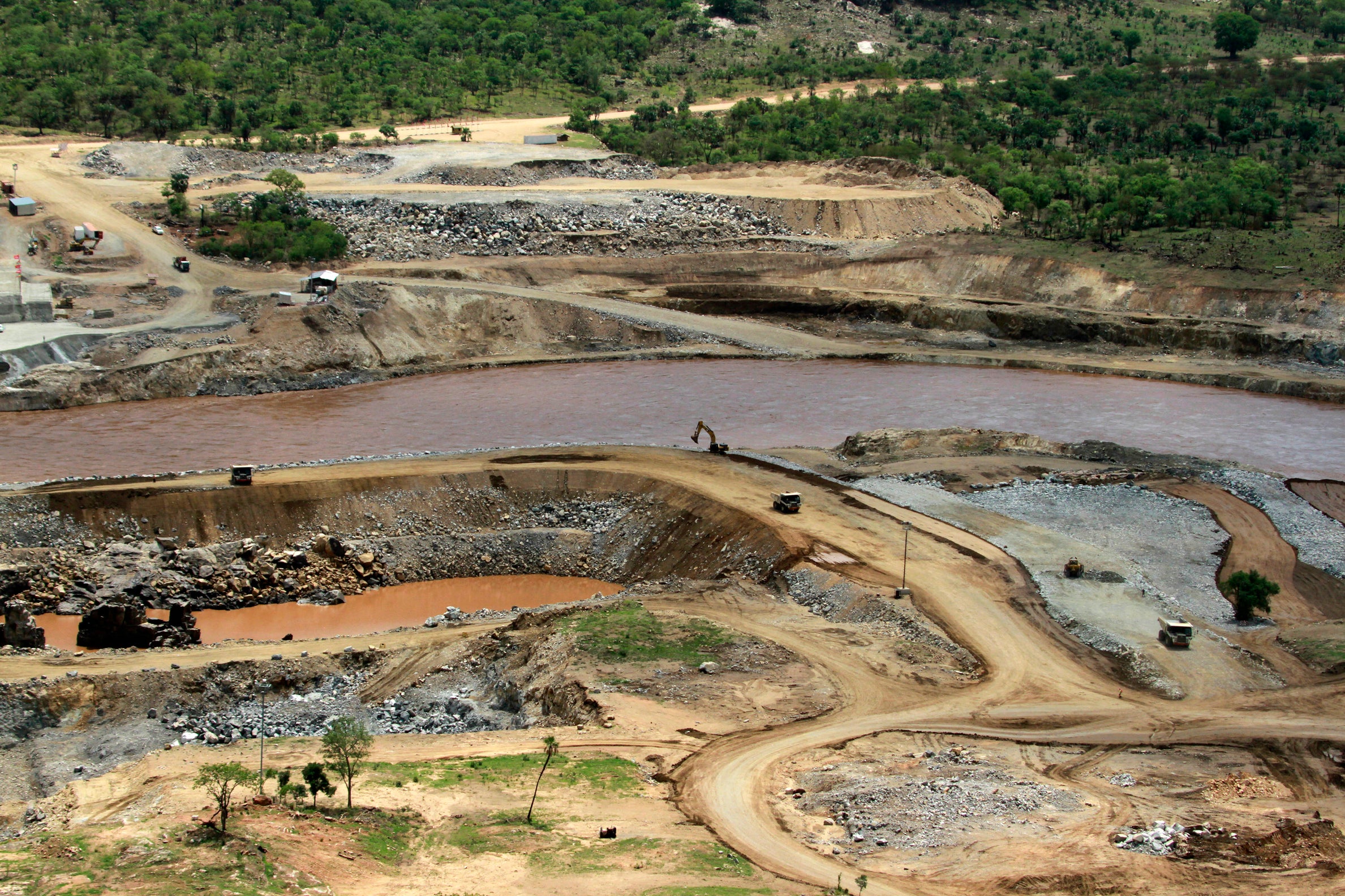Sudan boycotts talks over controversial mega-dam in Ethiopia
Ethiopia’s downstream neighbours fear the structure could reduce Nile water supplies

Your support helps us to tell the story
From reproductive rights to climate change to Big Tech, The Independent is on the ground when the story is developing. Whether it's investigating the financials of Elon Musk's pro-Trump PAC or producing our latest documentary, 'The A Word', which shines a light on the American women fighting for reproductive rights, we know how important it is to parse out the facts from the messaging.
At such a critical moment in US history, we need reporters on the ground. Your donation allows us to keep sending journalists to speak to both sides of the story.
The Independent is trusted by Americans across the entire political spectrum. And unlike many other quality news outlets, we choose not to lock Americans out of our reporting and analysis with paywalls. We believe quality journalism should be available to everyone, paid for by those who can afford it.
Your support makes all the difference.Sudan has refused to attend talks between Nile Valley countries over a controversial mega-dam in Ethiopia.
The Ethiopian Grand Renaissance dam on the Blue Nile is the source of severe tensions among the nations, with Egypt expressing fears for years that it would dramatically threaten water supplies downstream.
Sudanese irrigation and water resources minister Yasser Abbas said in a statement on Saturday that the current approach to reaching a tripartite agreement on the filling and operation of the dam had not yielded results.
He called on the African Union to do more to “facilitate the negotiation and bridge the gap between the three parties”.
It marked the first time Sudan boycotted talks with Ethiopia and Egypt. However, this could throw the complicated talks off track.
On Thursday, the foreign and irrigation ministers of Sudan, Ethiopia and Egypt held a virtual meeting, two weeks after they failed to agree on a new framework for negotiations.
After the meeting two weeks ago, Sudan said it “cannot keep negotiating without an end and must guarantee the safety of its water installations”.
South Africa, which heads the African Union, did not provide any immediate comment on Sudan’s boycott, nor did Egypt or Ethiopia. It was unclear when they would restart negotiations.
The project would create Africa’s largest hydroelectric dam, costing $4.6bn (£3.5bn). But Egypt and Sudan have opposed it, with the former calling it an existential threat amid worries it will reduce the country’s share of Nile waters.
Sudan has expressed concern about the effects on its own dams, though it stands to benefit from access to cheap electricity. Ethiopia has said the ambitious project will be an engine of development that will pull millions of people out of poverty.
But key questions remain about how much water Ethiopia would release downstream if a prolonged drought occurs, and how the three countries will resolve future disputes.
Ethiopia has rejected binding arbitration at the final stage of the project and refused a US-crafted deal in February. It went forward with the first stage of filling the dam’s huge reservoir, which prompted the US to suspend millions of dollars in aid to Addis Ababa, the capital of Ethiopia.
Ethiopia was embroiled in a deadly internal conflict earlier this month, after its federal government launched a military attack on the northern Tigray region.
Ethiopian prime minister Abiy Ahmed launched military operations in Tigray after accusing local authorities of attacking a military camp and trying to loot military assets, which was denied by Tigray’s ruling party.
The war risks spiralling out of control and could pull in Ethiopia’s neighbours, including Sudan, Somalia and Eritrea. Over 35,500 Ethiopian refugees fled to Sudan due to the fighting.
Additional reporting by AP


Join our commenting forum
Join thought-provoking conversations, follow other Independent readers and see their replies
Comments